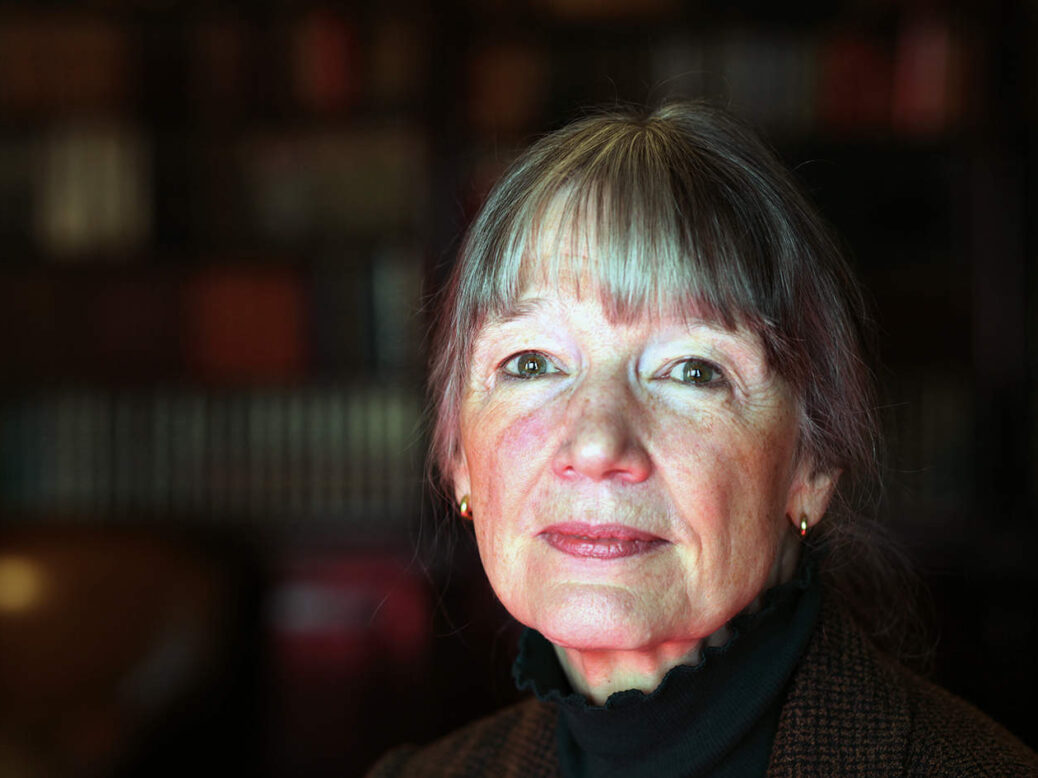
My beloved grandmother introduced me to Anne Tyler. Today, on my shelves, Tyler remains my most trusted literary companion. Her haphazard Baltimorean families rarely acknowledge the contemporary world. Rather than modern events, it is the endurance of families, connection and community that pulse through her landscapes; the cyclical, quotidian nature of birth, marriage, death. After my own family fell apart when I was young, it was Tyler’s flawed constellations of people who sustained me – who offered visions of what could have been and, sometimes, recognition of what we had.
Clock Dance is Tyler’s 22nd novel; now 76, she had published her first by the age of 23. Her no-style, see-through prose has earned her a Pulitzer (Breathing Lessons) and a Man Booker shortlisting (A Spool of Blue Thread). The hair’s-breadth she treads between sensitivity and the saccharine is not without risk, yet her ability to unpick emotional nuance is key. She is also that rare entity in publishing; a doyenne of domestic realism who doesn’t frighten male readers. Her characters, failing to see beneath a seemingly arbitrary whirl of events, experience different versions of the same problems. She excels at situations where right and wrong are linked. Her lack of judgement is well judged.
Here we meet Willa Drake at 11, 21, 41 and, finally, when the bulk of the novel is set, at 61 years old. The dazzle of Willa’s tempestuous mother is offset by her father (“saintly Melvin” Willa’s mother calls him). Such maternal unpredictability sets a blueprint for Willa and her younger sister Elaine. At college, joyously probing the origins of language, Willa falls pregnant by her wealthy fiancé. Meekly she drops out to become, “the only woman she knew whose prime objective was to be taken for granted”. Sudden, sharp widowhood at 41 leaves Willa parenting two sons. By 2017, 61-year-old Willa has moved with her second husband, Peter, to a golfing community in Tucson, Arizona (despite having no interest in golf). Tyler writes about how people communicate with each other, so it makes sense that Willa, leaving behind a cherished ESL teaching job, has forsaken language once more.
Sealed off in privileged isolation, it is here that Willa’s life takes flight. On the tenuous grounds that her son’s ex-girlfriend Denise and nine-year-old daughter need looking after, Willa travels from Arizona with its air-con and manicured yards with artfully arranged succulents to “a bare-bones kind of house” on the other side of the country and, seductively for a woman whose sons won’t see her, a staid, old-ladyish child whose “bunchy-crotched shorts and… crop top… exposed the globe of her tummy”. Tyler’s sotto authorial thread weaves Willa into a community that needs her. In return, Willa is gifted with a sense of purpose – and finds the language to remain.
When Tyler was six, her Quaker parents moved her family to a community in the Appalachians, so her interest in family and community is understandable – and autobiographical. Willa’s progression into feeling connected, into finding her will, isn’t easy; patterns take courage to break, new language must be learnt.
Freedom, flight, oxygen, breath, space: these themes whistle through Clock Dance’s pages, as does enduring the bruising loss of a loved one – a common theme in Tyler novels (her own husband, the child psychologist Taghi Modarressi, died when she was in her mid-fifties). Ben, a doctor in Baltimore whose wife died 17 years ago, advises Willa, “Sometimes, when I’m feeling sorry for myself… I widen out my angle of vision till I’m only a speck on a globe.”
Authors can slip into handling characters as though operating puppets on a string. Tyler, though, takes care to understand hers implicitly. So impeccably does she know them, that by the middle of a novel, they begin to surprise her with their own humour. Therefore, the one-dimensionality of Willa’s truly awful second husband Peter hits the only tinny note. However, given Tyler’s commitment to character, one might assume he really is intended to be terrible.
So, on the Tyler continuum, where does Clock Dance rest? Not Tyler’s best novel yet certainly not her worst, it says less than the excellent Digging to America (2006), which mined expertly the faultlines between an American-Iranian family and an all-American family adopting Korean children. It is also less rich, less compressed, than some of her earlier novels, Ladder of Years (1995) or Earthly Possessions (1977). In both, the central women also take flight from their lives (although by different means). In the latter, the principal character Charlotte notes, “I saw that all of us lived in a sort of web, criss-crossed by strings of love and need and worry.” Tangled connections are prime Tyler territory.
Tolstoy famously observed that “each unhappy family is unhappy in its own way”. Through finely attuned, blink-and-you’d-miss-them moments, Willa finds the language for her own redemption, courageously forging her own, new family.
Clock Dance
Anne Tyler
Chatto & Windus, 304pp, £18.99
This article appears in the 08 Aug 2018 issue of the New Statesman, The rise and fall of Islamic State





